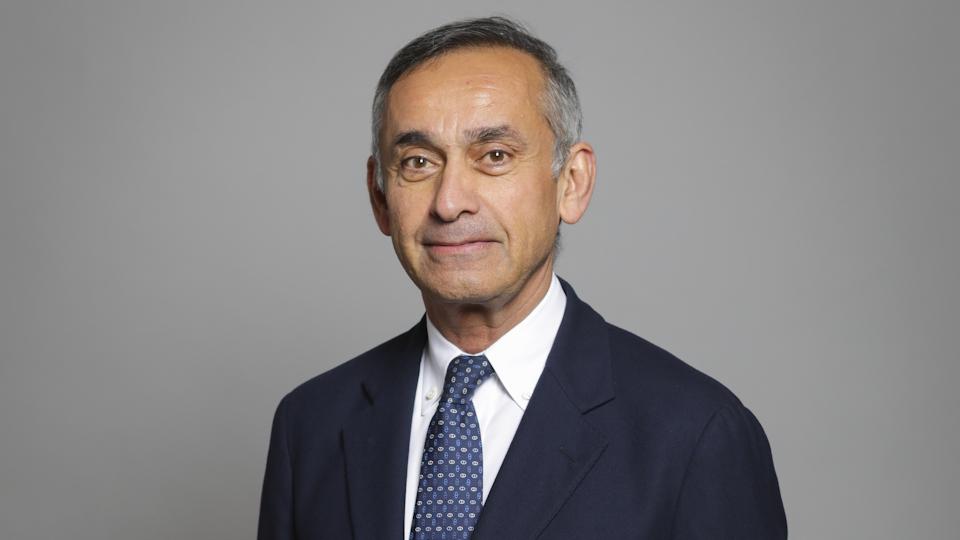NHS is in "serious trouble" says Darzi report

Ara Darzi, Baron Darzi of Denham
A report on the state of the NHS in England by former Labour Health Minister Lord Darzi has concluded that it is in a dire state – which will come as a surprise to nobody – and has problems that could take up to eight years to fix.
The report was commissioned by new UK Health Secretary Wes Streeting days after coming into office, who said it was important to understand the true state of the NHS before embarking on reforms. Now, it will form the basis of a 10-year plan to get the health service back on track.
While the NHS is in a "critical condition" – with expanding waiting lists, missed targets for A&E and hospital treatments, and poor survival rates for cancer and heart disease – "its vital signs are strong," according to Darzi, an eminent surgeon at Imperial College London who also led an NHS review in 2008 under the previous Labour government.
That is thanks to the quality, passion, and determination of the NHS workforce, as well as "more resources than ever before," according to the 163-page report (PDF), which blames the parlous state of the NHS on years of austerity in the 2010s after the Conservatives came into power and a chronically starved capital budget.
"Although I have worked in the NHS for more than 30 years, I have been shocked by what I have found during this investigation – not just in the health service, but in the state of the nation's health," writes Darzi.
Among the key problems highlighted in the report is that too much of the NHS budget is being spent in hospitals, with too little going to community health services and GP services increasingly stretched, along with poor productivity as workers waste their time solving "process problems," like trying to find available beds.
With 2.8 people out of work due to illness – up 800,000 on pre-pandemic levels – the nation's health is harming national prosperity. Meanwhile, the service has largely missed a decade-long opportunity to digitise its processes and move from a 'diagnose and treat' model to 'predict and prevent.'
"I would note that the NHS has been through very difficult times in the past and has emerged stronger," according to Darzi. "It has taken more than a decade for the NHS to fall into disrepair, so improving it will take time."
His solutions include redirecting some of the budget towards general practice, mental health, and community services – and crucially locking in those changes so they stick long-term – to encourage a simpler, neighbourhood-based NHS model.
Hospital productivity must be addressed to tackle waiting lists (now at 7.6 million) and rebuild capacity, helped with technology like digitalisation and AI that will help tap into the value of NHS health data.
Responding to the document in a BBC interview, Streeting has confirmed the government will shift the balance in funding in favour of neighbourhood services, accelerate the switch from analogue to digital services, and shift the emphasis from treatment to prevention.
Details of the government's response, however, will have to wait for the Autumn Budget announcement on 30th October, and the full 10-year plan isn't scheduled to be published until spring next year.
Industry needs support
In good news for the life sciences sector, the report also says specifically that UK biopharmaceutical companies need to be better supported, saying: "For the NHS, partnerships with the life sciences sector for research or treatment too often fall into the category of 'important but not urgent'."
"It has simply not been a high enough priority in a world where waiting lists are long, and finances are tight," it goes on. "But in the medium term, it is innovation that can make the NHS more sustainable."
The Association of the British Pharmaceutical Industry (ABPI) welcomed that assertion, saying it is ready to be an "active partner" in helping to fix the NHS.
"This hard-hitting report makes clear the huge pressure the NHS is under, but also highlights that it is innovation that can make the NHS more sustainable," said ABPI chief executive Richard Torbett.
"Turning the NHS around will require radical thinking, including investing in prevention, boosting NHS revenues through attracting more clinical research, partnering with industry to speed up diagnosis, and streamlining access to treatment."












